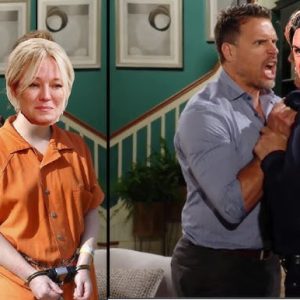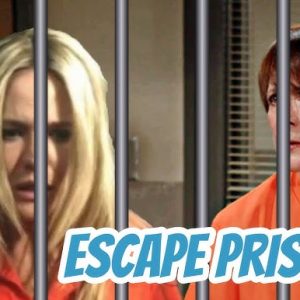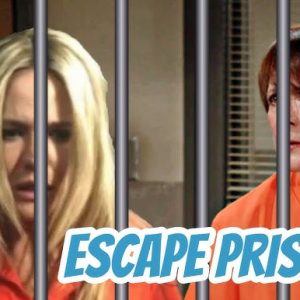In a dimly lit corner of Daniel’s apartment, Chance stumbles upon a
hidden camera tucked behind a stack of books on the shelf.
His heart sinks as he realizes the gravity of the footage recorded on this
tiny device—a video that appears to capture Sharon committing an unimaginable crime. The recording reveals Heather lying lifeless on the floor, while Sharon, seemingly dazed and disoriented, has blood on her hands. This discovery shocks Chance to his core, as Sharon has long been a friend and someone he knew to have her own vulnerabilities, particularly with her struggles with mental health.
As a dedicated detective, Chance is trained to uphold justice, yet the situation feels deeply personal and conflicting. How could Sharon, a woman he once saw as fundamentally good, be involved in such a heinous act? The physical evidence seems irrefutable: blood matching Heather’s has stained the floor, and Sharon’s fingerprints are right there. Yet, Chance wrestles with a sense of doubt. Could this truly be as simple as it looks? Given Sharon’s history, it’s possible she had a psychotic episode or a memory lapse that clouded her perception and actions. Chance wonders if Sharon could be suffering from a fractured mind, leading her to a dark place without awareness of her actions.
Needing support, Chance takes the footage to Daniel, who reacts with disbelief and devastation. Sharon, someone he deeply cares about, now stands accused of an unthinkable crime, and the evidence appears undeniable. Daniel’s reaction mirrors Chance’s—shock and an unwillingness to accept that Sharon could willingly commit such a violent act. With a heavy heart, Chance explains the fingerprints, the blood evidence, and how everything points to Sharon, but he also expresses his doubts. He believes Sharon’s mental state may have played a significant role in what happened, and her actions might have stemmed from a psychological break, making it difficult for her to control or even remember the event.
The two men grapple with the decision before them. Daniel, crushed by the reality of Sharon’s possible involvement, feels the weight of their next steps. Should they take this to the authorities? Or should they explore alternative options? Both understand that a straightforward arrest and trial may not be what Sharon needs. They worry that such an approach could lead her to a prison cell rather than the psychiatric help she may desperately require.
Chance, torn between his duty to uphold the law and his empathy for Sharon, voices his concern. He’s sworn to protect the innocent and bring justice, yet he senses that this situation requires a careful, nuanced approach. If they hand this footage to the authorities, Sharon might not get the help she needs. But if they cover up the evidence, they risk betraying their integrity and the justice system itself. Daniel listens, understanding the moral weight behind Chance’s words. Sharon’s well-being is at stake, and they both recognize that this tragedy could end in even greater harm if handled poorly.
After much deliberation, Daniel proposes a third option—a path that could provide Sharon with the help she needs without subjecting her to criminal prosecution. He suggests they consult a trusted mental health professional who could assess Sharon’s mental state. If her condition is severe enough to indicate diminished responsibility, they could push for treatment rather than punishment. This approach, they hope, would allow Sharon to confront her actions in a therapeutic setting rather than a courtroom.
Chance agrees, seeing the compassion in Daniel’s plan and the potential to help Sharon without compromising justice. They know the risks are high—one misstep, and the footage could leak, shattering any hope for Sharon’s recovery. Together, they decide to consult a reputable psychiatrist to evaluate Sharon. If her diagnosis points toward a mental health issue that contributed to her actions, they’ll advocate for a treatment program rather than jail time, hoping to save Sharon from a fate that could destroy her entirely.





